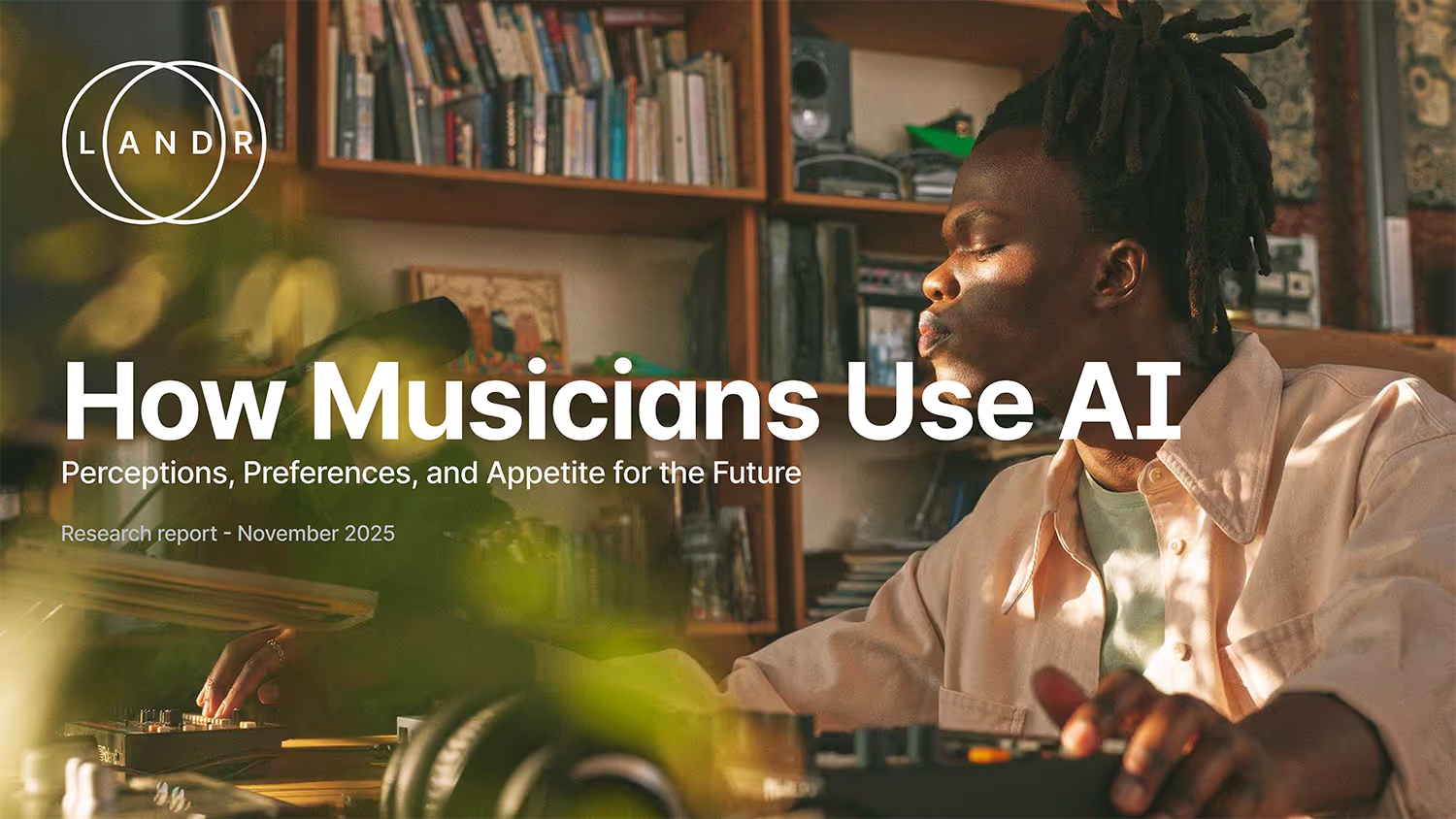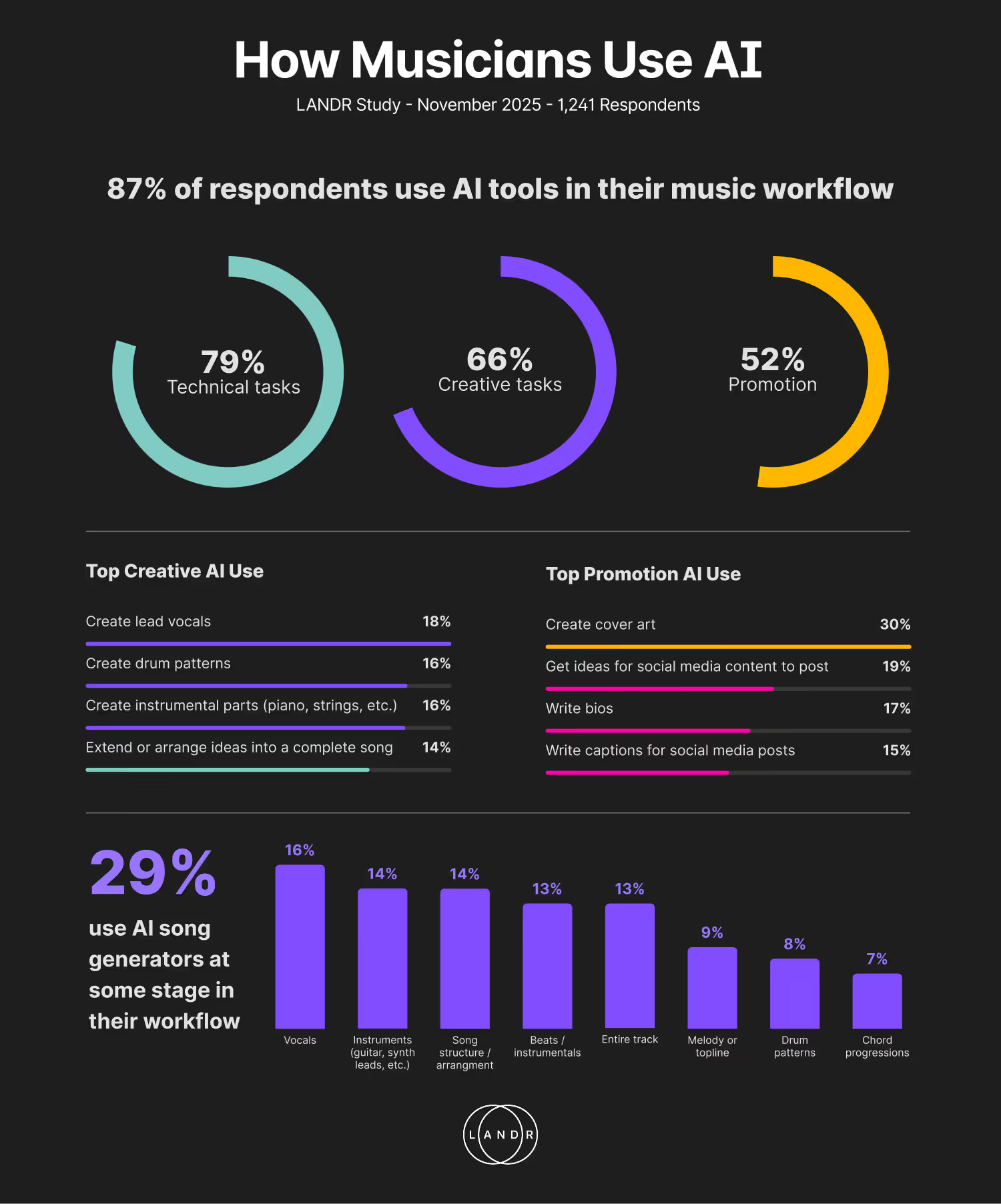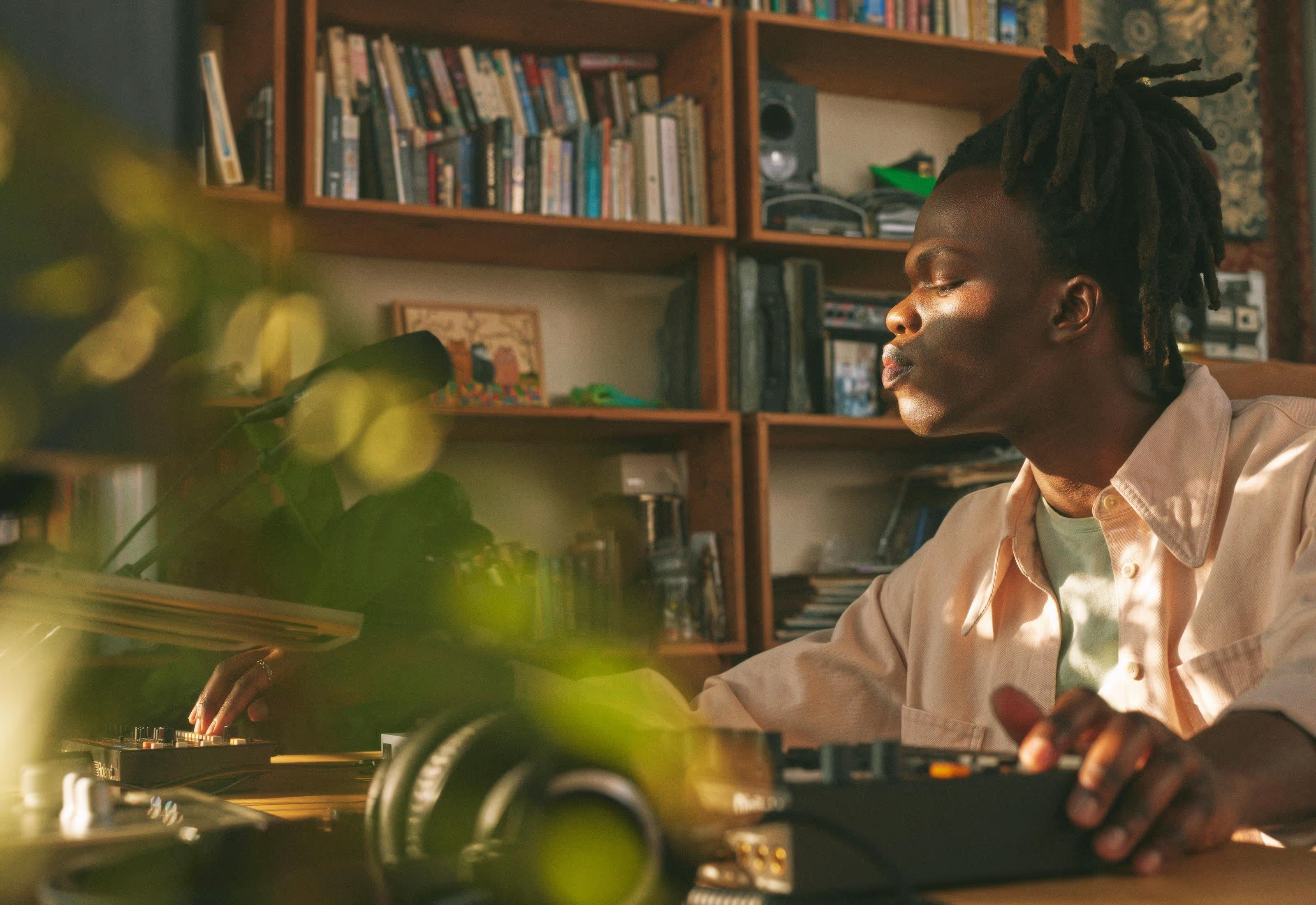How Musicians Really Use AI
AI has been part of LANDR’s DNA from the very beginning. Twelve years ago, we launched the world’s first AI mastering tool, opening the door for artists everywhere to achieve professional results on their own terms. Since then, we’ve seen both the opportunities and the challenges that come with using AI in music creation.
This survey was developed to better understand how creators perceive, use, and plan to use AI in their workflows. We’re sharing our insights openly so the entire industry can benefit, helping to build a music-making community that is open, informed, and inspired.

Methodology
This survey took place from September 30th - October 6th 2025, among 1,241 music makers from LANDR’s global community aged 16 and older. It was conducted online and contained over 30 questions in multiple formats. Respondents had varying levels of music-making experience, from beginner to expert, and employed diverse music production methods across a range of genres.
Topics
- AI perceptions
- Usage of AI in music
- Advantages and concerns
- Appetite for future usage

Key takeaways
AI is enabling self-sufficiency for creators
87% of artists now use AI somewhere in their workflow, from technical production tasks to creative and promotion support. Artists cite that these tools are helping them do things they otherwise wouldn’t be able to because of skill gaps or lack of time.
Growing acceptance of song generators
29% of respondents are using song generators at some stage in their workflow, especially to create song parts like vocals and instruments. 40% are interested in trying them out, particularly for song parts or ideas rather than complete tracks.
Strong interest for AI in promotion
Across the 52 tested ways that AI helps artists in creation or promotion, the most desired support was for cover art creation and researching target audiences, analyzing stats, and designing promotional strategies. Over 80% of respondents either use or want to use AI for these tasks.
AI adopters are deepening their use, while traditionalists risk being left behind
69% of artists are already using more AI tools than last year and 90% of these creators plan to use more next year. For the 30% who haven’t increased adoption, just 1 in 4 want to do so, reinforcing a growing divide in production approaches in which traditionalists are a minority.
Discover the Fair Trade AI Program
Learn how LANDR is making ethical AI training in music possible




















